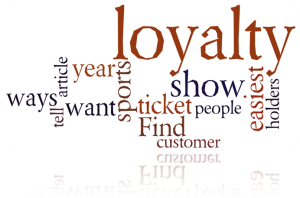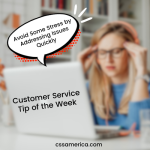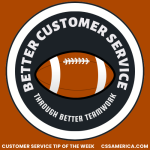
I referenced the infamous recorded Comcast Retention call in a Tip of the Week on July 22. It’s been such a lightning rod for discussion that we just recorded a podcast addressing some of the key language that the Comcast representative used during the call. Now, we’ve gained access to what’s reported as being the company’s 13-Step Retention Call Approach. Let’s analyze this from the customer’s perspective.
- Greet customer clearly – This is good; customers want to know the employee’s name and department to make sure they called the right place.
- Clarify reason for call – We always say “Clarify and Confirm” – ask clarifying questions, then confirm your understanding. Customers want the employee showing that they know the reason for calling (and, in this case, canceling their service).
- Relate and empathize – Love this – especially the Empathy portion. Customers want to be understood.
- Take control – Not sure why this is here; “control” has a power/aggressive connotation. It’s not good to encourage representatives to get aggressive with a typically-upset customer. Customers don’t want to be controlled.
- Set the agenda – Again, this conveys aggression, taking over, not focused on listening.
- Ask targeted questions – This may be fine, depending on the definition of “Targeted.” We use that word to illustrate questions unique to the customer and their situation. However, the employee asked “targeted” questions such as “Why would you not want the fastest internet?” This is pushy and derogatory at the same time.
- Consider unstated needs / active listening – Active Listening is great! However, “unstated needs” is sales terminology. If someone wants to cancel, you’re in Service Recovery territory, not hardcore sales territory.
- Take ownership / make offer – These should work well.
- Overcome objections – This is fine as long as the customer’s still willing to dialogue about the issue; if they want to avoid the debate, quickly cancel and go to step 12.
- Close the save – Change this to “Close the save…or close the account.” In the end, do what the customer wants you to do.
- Confirm details – Always confirm next steps before closing.
- End on a positive note – Good step.
- Documentation – Good step.
Many of the steps are positive, but where they go wrong is that they focus too much on controlling the customer in a hardcore sales manner instead of communicating with a customer in a Service Recovery mindset.
When a customer wants to cancel or end the relationship, feel free to professionally ask for reasons, but remember that you’re delivering customer service, not driving the hard sell. You may retain just as many, and you’ll definitely avoid the horrific word-of-mouth that this call created.
Signup for FREE Tips! Contact Us More Resources for You Visit Our Home Page























